TABLE OF CONTENTS
Does RAM Brand Matter? If so, when and why?
I want to tackle these questions in this article, as well as a few other questions tied to RAM branding and RAM purchasing.
Let’s dive into it.
Why RAM Brand Matters
Warranty and Returns
This is the big one: with any piece of PC hardware, you want to make sure there is a good warranty and return policies to protect you, should something go wrong.
In the case of well-known brands, they have a reputation to protect, and this makes it easier to find their warranty and return policies, and people’s actual experiences using those channels.
Even if the brand you don’t recognize is selling ostensibly the same hardware, they may not be taking care of their customers in the same way.
Quality Assurance and Testing
Another benefit of buying RAM from more recognizable brands is the knowledge that the company has more incentive to do quality assurance and testing, especially on the higher-end.
While all RAM is initially manufactured by one of three companies, brands do end up testing and often modifying that RAM before the consumer gets to see it. (ie, adding a Heatsink)
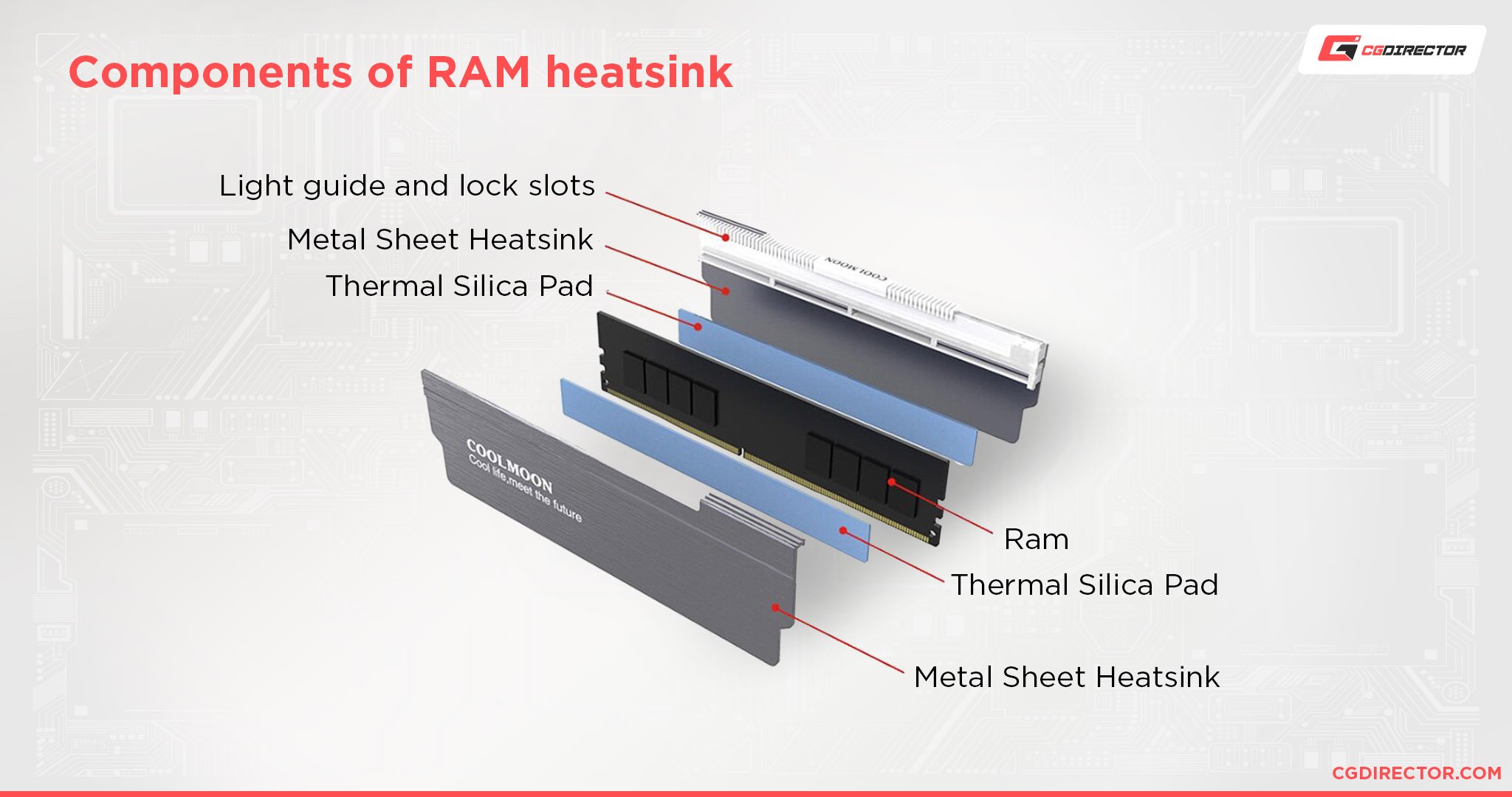
Distinguishing High-End RAM
If you’re looking for RAM that’s particularly high-end or has a very specific quality that won’t be in the spec sheet (ie, Samsung B-Die), buying from a prominent brand becomes a lot more compelling.
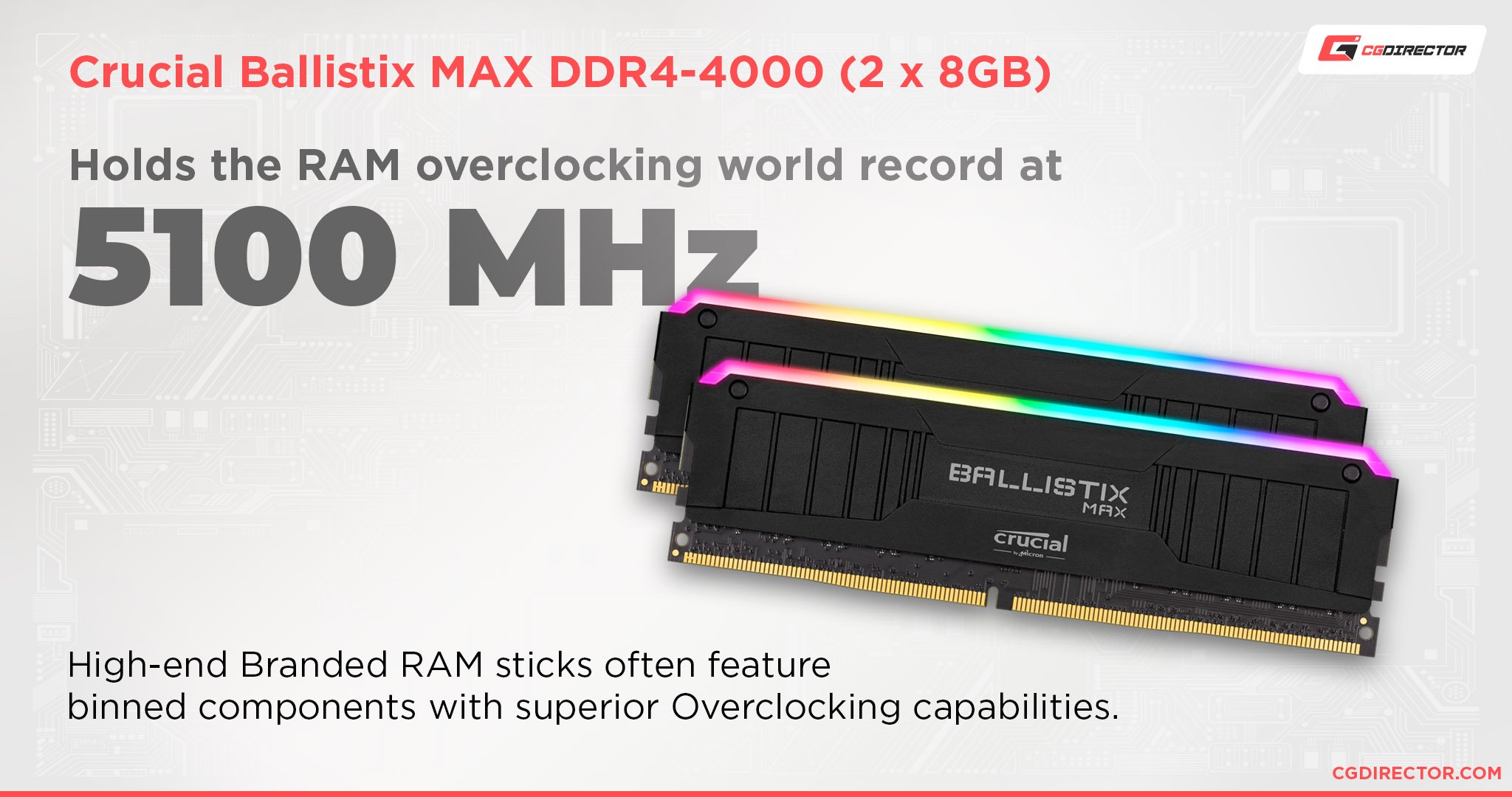
In addition to the above benefits, high-end branded RAM will be under a lot more scrutiny than budget RAM, so reviewers will most likely make you aware of any issues a particular kit has compared to its (maybe) cheaper competition.
Why RAM Brand Doesn’t Matter
All RAM Is Manufactured By One of Three Companies
This one might sound a little conspiratorial, but it’s actually true.
Regardless of the final brand you end up with, all RAM is initially manufactured by one of three companies before it is sold by partners or businesses owned by those three companies.
The three companies responsible for manufacturing all RAM are Samsung, Hynix, and Micron.
This means that even if you’re buying RAM from a brand that you’ve never heard of, it’s still coming from one of those three companies.
Specs, Advertised Correctly, Do Tell Most of the Full Story
With the above point in mind, off-brand RAM is likely starting to look a bit more appealing.
Unlike other products where you don’t go for a recognizable brand name, you are most likely still getting what you should expect since it’s all sourced from the same three manufacturers.
A RAM kit specced for 3200 MHz at a CAS Latency of 15 should perform the same, regardless of who you’re buying it from unless it’s outright being falsely advertised.
Brand Doesn’t Impact Performance
Ultimately, a brand name is just that: a brand name. If the above points have been considered- accurate advertising, specs that match your needs, the fact that the off-brand and recognizable brand are most likely using the same stick- then you should be good to go.
Different Heat-Sinks will only marginally affect performance in very rare cases of extreme overclocking or in difficult-to-cool environments.
However, you should still be mindful of the warranty and return policies of whoever you’re buying your RAM from, even if they have a recognizable name.
Be sure to check reviews of whatever RAM kit you’re buying as well- if no one has said or rated anything before you, I generally recommend against being the first person to find out.
FAQ
Does RAM Brand Matter for Samsung B-Die RAM?
Yes, because Samsung B-Die RAM is not generally advertised as a primary specification.
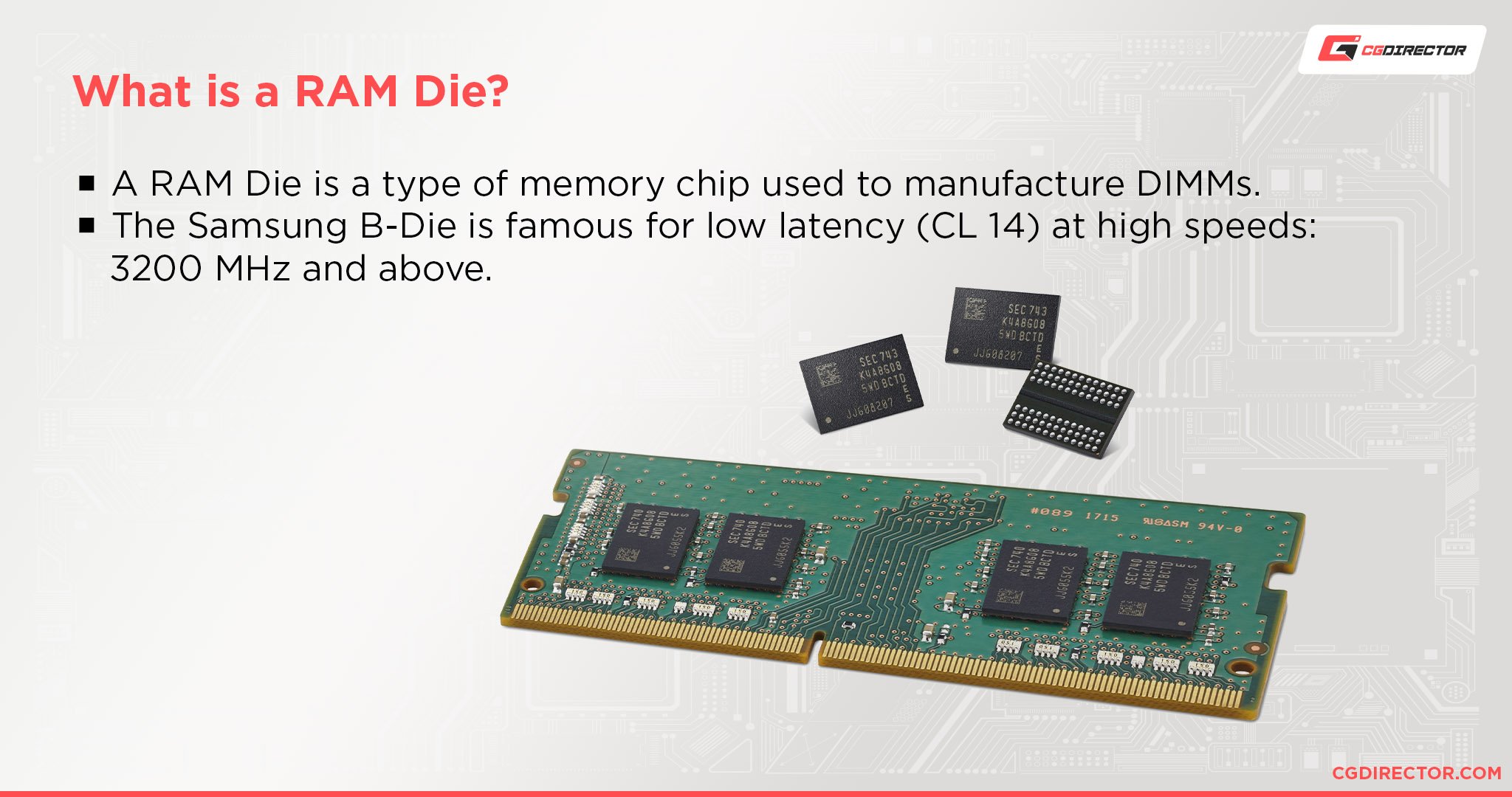
Using tools like B-Die Finder, you can even see that B-Die RAM is tied to a limited selection of brands that are still ordering B-Die RAM from Samsung.
If you’re interested in learning more about Samsung B-Die RAM or just want a convenient selection of B-Die kits to pick from, click here to check out my Guide to Samsung B-Die RAM.
Can I Mix RAM Brands In The Same PC?
Yes, but you need to be really careful and it still might not work. The main thing you’ll want to do is make sure that the speed, latency, and size of all individual RAM sticks are identical.
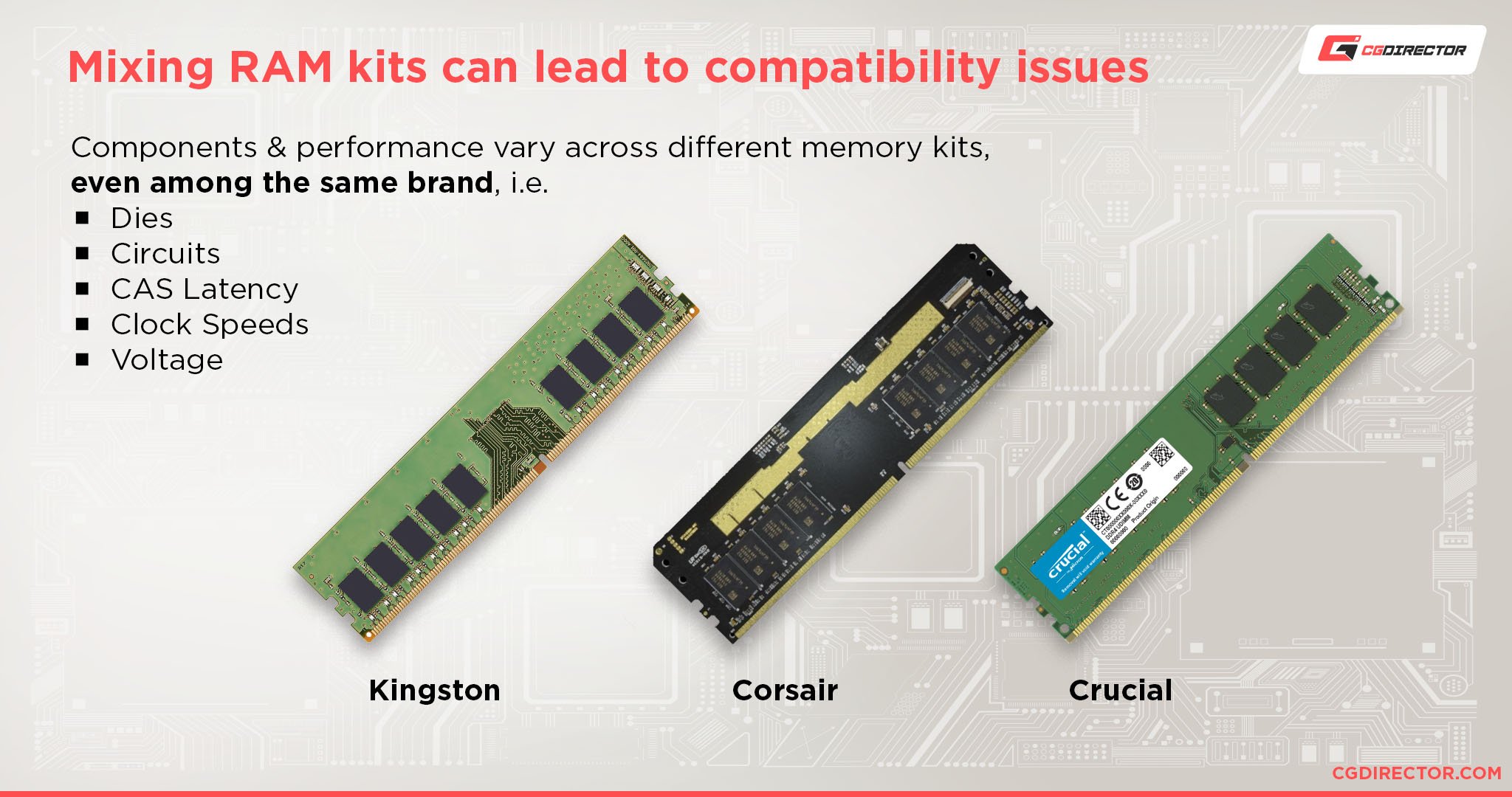
If this is the case, then mixing RAM brands should work, because on paper you’re using identical RAM for a dual or quad-channel configuration.
However, we can’t guarantee that the identically-specced RAM is actually identical, especially if one of the brands you’re mixing is a relative unknown.
You can try, but I generally wouldn’t recommend it. Memory is an incredibly fickle technology by nature.
What Are The Best RAM Brands?
Here are my top recommended brands for buying RAM:
- Samsung, Hynix, or Micron – If your RAM is branded and sold by one of these companies, you’re basically buying it straight from the source.
- Corsair – High-end, gamer-focused branding. Veers more expensive than other brands, but boasts great RGB.
- G.Skill – High-end, gamer-focused branding. Usually cheaper than Corsair while still offering great performance and features like RGB.
- Kingston – Mid-range, generally focused on great performance-per-dollar. Usually doesn’t use RGB or add frills beyond a heatsink.
- Patriot – Mid-range, generally focused on great performance-per-dollar. Usually doesn’t add extras like RGB.
- Crucial – Owned by Micron. Usually aimed at budget or mid-range users.
- ADATA – Usually aimed at budget or mid-range users. Reliable quality.
Over To You
And that’s it, at least for now! If you have any other questions about RAM and RAM brands, let us know in the comments below or our forum!
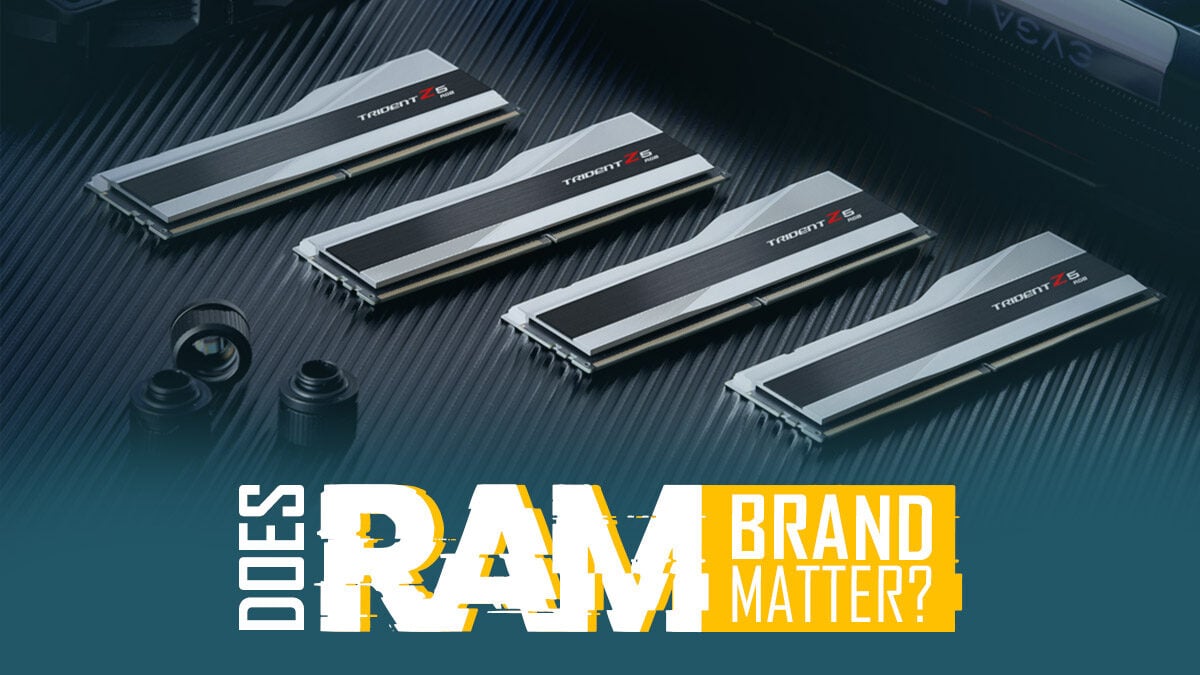
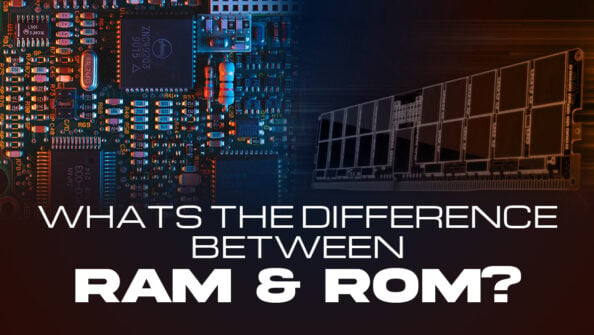
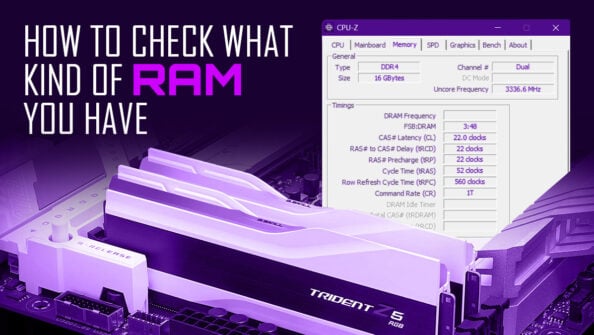
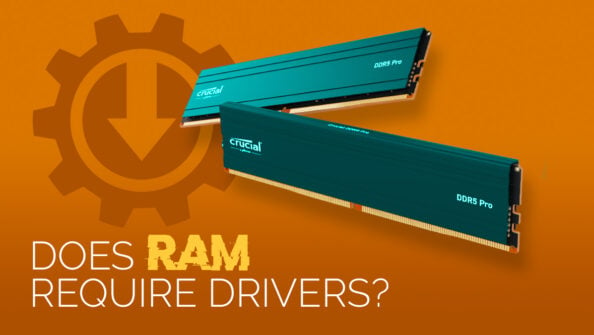
![How Much RAM Does my PC Support? [How to Check] How Much RAM Does my PC Support? [How to Check]](https://www.cgdirector.com/wp-content/uploads/media/2023/10/How-Much-RAM-Can-My-Computer-Take-Twitter-594x335.jpg)

0 Comments